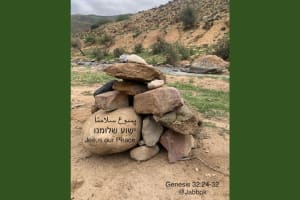Shavuot in Israel: Biblical meaning, traditions and connection to Pentecost

Shavuot, also known as the Feast of Weeks, is one of the three major pilgrimage festivals in Judaism, along with Passover and Sukkot. It is biblically described as an agricultural festival marking the end of the grain harvest. Key scriptural references for Shavuot include Exodus 23:16: “You shall keep the Feast of Harvest, the first fruits of your labor, of which you sow into the field.” Other passages in Numbers 28 and Leviticus 23 emphasize that Shavuot commemorates the end of the grain harvest and includes offerings and a day of rest dedicated to the Lord.
In modern Israel, Shavuot is celebrated with customs that reflect both its agricultural roots and its spiritual significance. One of the most popular traditions is the consumption of dairy products. This practice may be linked to the idea of purity and innocence – just as the Israelites were considered pure like newborns when they received the Torah. Common foods on Shavuot include cheesecake, lasagna, quiches and other dairy-based dishes.
Another important tradition is the all-night Torah study known as Tikkun Leil Shavuot. Many stay up all night studying the scriptures to commemorate God giving the Torah at Mount Sinai. This practice is rooted in a legend that the Israelites overslept on the morning they were to receive the Torah. Staying up all night is seen as a way to rectify that.
The Book of Ruth is also read during Shavuot, as its events take place during the harvest season. The story highlights themes of loyalty and conversion, which are closely tied to the spirit of the holiday.
In agricultural communities like kibbutzim, Shavuot is marked with ceremonies showcasing the first fruits of the harvest. Even today, children participate in parades, wearing white and carrying baskets of produce. A unique and fun tradition in Israel also includes water fights – likely due to the hot weather during this time. The custom is especially popular among younger Israelis.
For believers in Yeshua (Jesus) Shavuot holds additional meaning as it was the time when the Holy Spirit was poured out on the apostles, as described in the Book of Acts.
The Greek word for Shavuot is Pentecost, which came to be used for the Christian holiday commemorating this pivotal event in the lives of the first followers of Yeshua.
The apostles were gathered together when a sound like a rushing wind filled the house, and tongues of fire appeared and rested on each of them. They were filled with the Holy Spirit and began to speak in different tongues as the Spirit enabled them. This moment, described in Acts 2:1–4, is seen by many Messianic Jews and Christians as the fulfillment of the promise of the Holy Spirit as given to the Hebrew prophet Joel (chapter 2, verses 28-32). It is celebrated as a time of spiritual renewal and empowerment.

The All Israel News Staff is a team of journalists in Israel.
You might also like to read this:
















